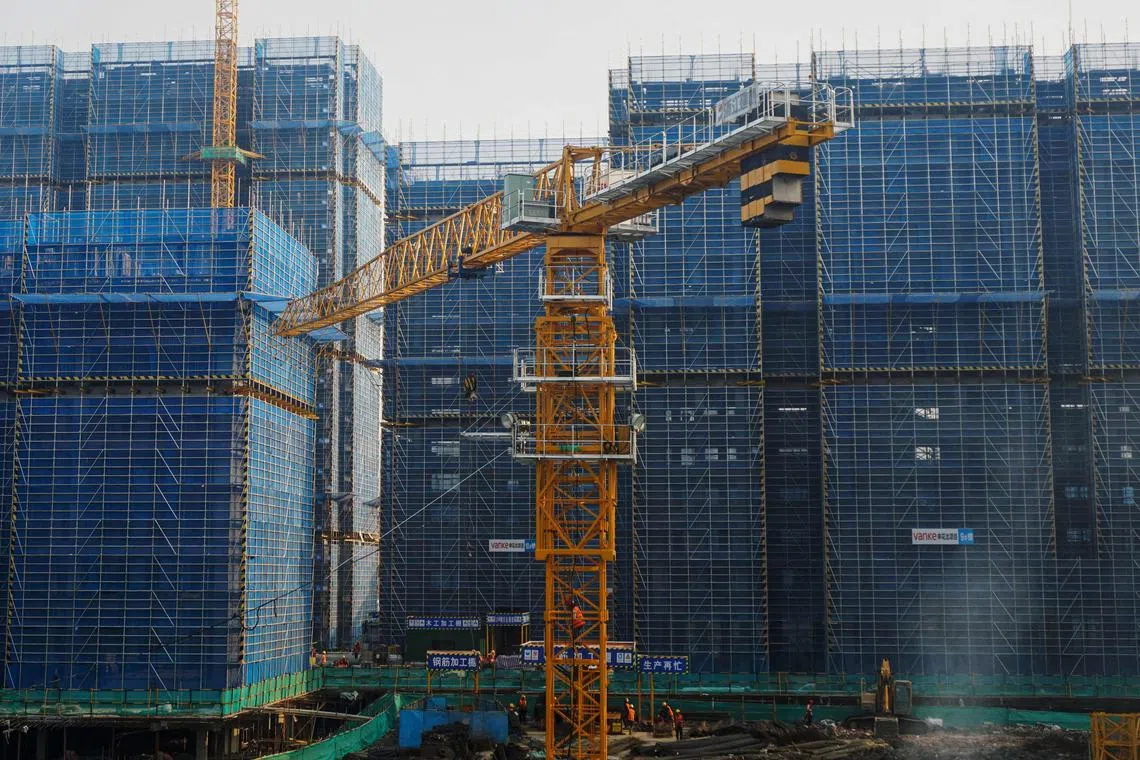Chinese megacity Hangzhou, home to Alibaba, lifts all home purchase curbs
Sign up now: Get ST's newsletters delivered to your inbox

Hangzhou, capital of the wealthy Zhejiang province, boasts some of China’s most desirable and expensive real estate.
PHOTO: AFP
BEIJING – China’s eastern metropolis of Hangzhou, among the country’s most thriving cities, said it will lift all home purchase restrictions to shore up its real estate market, raising the prospect of other cities following suit.
As of May 9, Hangzhou’s government will no longer vet the eligibility of potential buyers, the city housing authority said in a notice.
Hangzhou is capital of the wealthy Zhejiang province and boasts some of China’s most desirable and expensive real estate. That led the local authorities to impose home purchase curbs to deter speculation.
Home demand has sagged across the country since 2021, hitting even China’s traditionally hot markets such as Hangzhou, as a debt crisis among property developers and a continued decline in prices chilled buyer sentiment.
The Chinese authorities have been ramping up measures to prop up the troubled sector, but many of the policies have been piecemeal in nature or have only a limited, short-term impact.
In Hangzhou, new home prices edged up 1 per cent year on year in March, the slowest pace in nearly six years, according to the latest data from China’s statistics bureau.
In April, the city’s new home sales stood at 310,000 sq m, slumping 75 per cent year on year, a survey by real estate firm Cric showed.
On April 30, a meeting of Communist Party leaders called for measures to support the property sector, saying it would improve policies to clear mounting housing inventories.
A day earlier, the south-western city of Chengdu, home to 21.4 million residents, dropped all home-buying limits.
Hangzhou is the first city to completely abolish purchase restrictions after the meeting, said analyst Yan Yuejin at E-house China Research and Development Institute.
The city’s decision will be “very inspiring” for other cities that still have curbs on home purchases, and a wave of cities will see unprecedentedly large-scale policy easing starting in May, Mr Yan said.
The city of 12.5 million people is China’s answer to Silicon Valley, being home to technology majors such as Alibaba Group and NetEase. It has been a magnet for tech talent from all over China, further elevating housing demand.
The initial public reaction on social media platform Weibo was less than enthusiastic.
“What’s the point of cancelling the purchase restrictions? Hangzhou’s (high) property prices make it unaffordable for us to buy still,” one netizen commented after the announcement.
Some so-called tier-one cities like Beijing, Shanghai and Shenzhen are still enforcing strict home purchase restrictions.
Analysts do not expect the tier-one cities, which also include Guangzhou, to relax all their purchase restrictions any time soon.
“Relaxing purchase restrictions has proven ineffective at reviving demand,” said economic analyst Joe Peissel of Trivium China.
“That’s because there are massive excess supplies of housing – both new builds and second-hand units – that weigh on prices and deter buyers from re-entering the market.
“Prices need to fall much further before the property market reaches a new equilibrium and home buyers have the confidence to re-enter the market.”
During the five-day May Day holiday, China’s average per-day home sales by floor area plunged 47 per cent from a year earlier, according to figures from the China Index Academy, among the country’s largest independent real estate researchers.
The volume of sales was also down around 30 per cent from pre-pandemic levels in 2019 for the same period. REUTERS


